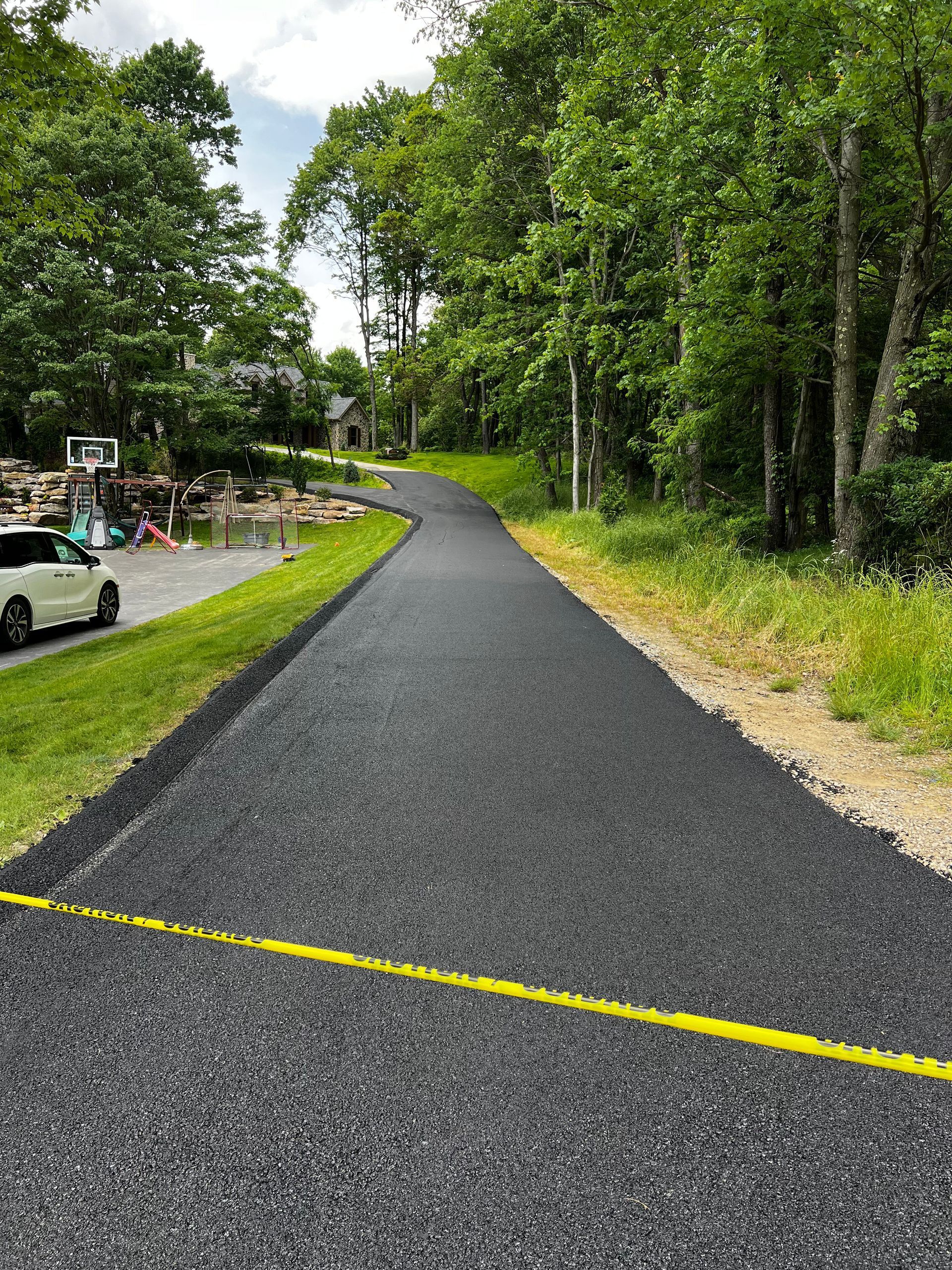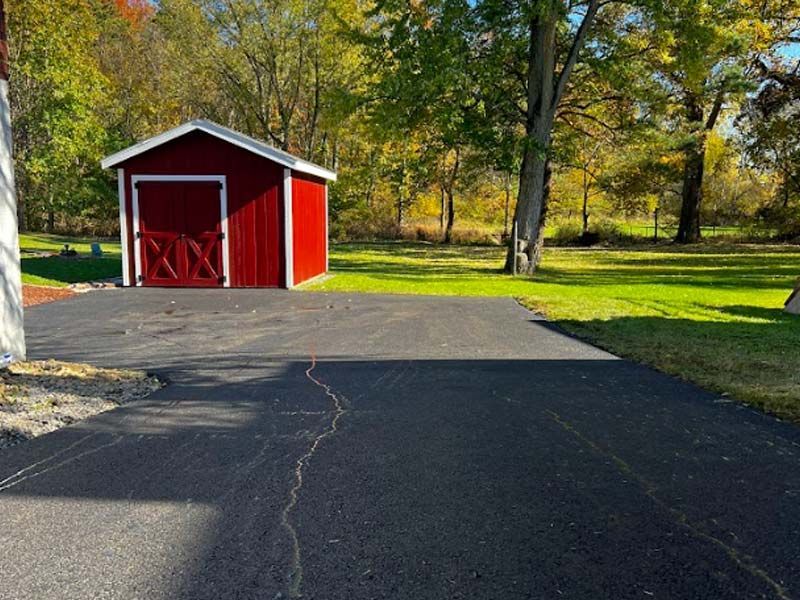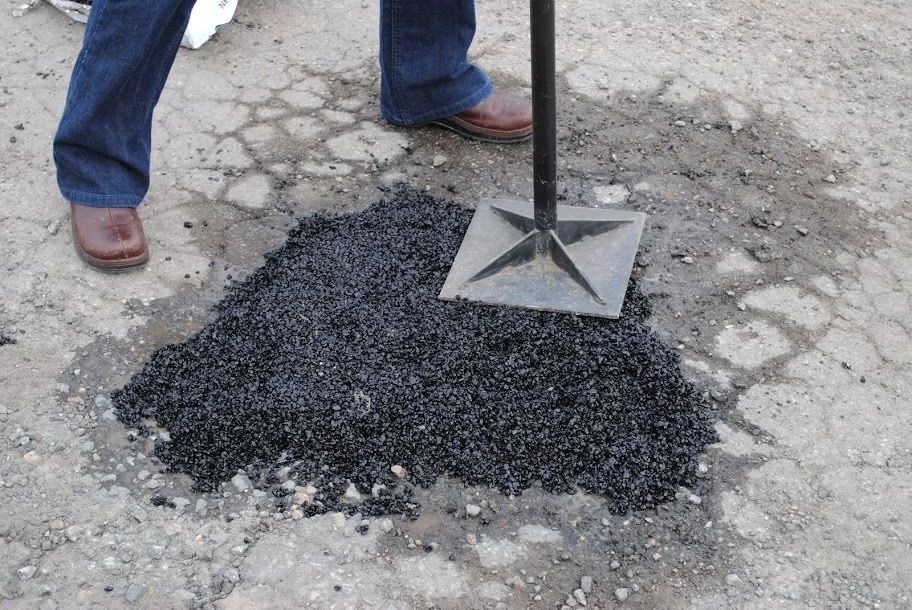Contact Info
Business Hours
- Mon - Fri
- -
- Sat - Sun
- Closed
Email:
Call Us Today
Unpacking the Layers of Asphalt Paving: A Comprehensive Guide
What is Asphalt Paving?
Welcome to our deep dive into the world of asphalt paving! Whether you're a homeowner considering a new driveway, own commercial property or a property manager this blog post will guide you through the intricacies of asphalt paving.
Asphalt paving, also known as blacktop or asphalt concrete, is a composite material commonly used for road surfaces, parking lots, and driveways. It's made from a mixture of aggregates (like sand, gravel, or crushed stone), asphalt binder (a derivative of petroleum), and sometimes a filler material such as cement. This concoction is heated and then laid down in layers to create a firm, smooth surface.
The Paving Process
1. Preparation:
- Evaluation: The first step is assessing the site for any existing damage or issues. This includes checking for drainage problems, soil stability, and the condition of any old pavement.
- Excavation: If you're starting from scratch, this involves digging to the right depth. Existing surfaces might need removal or milling down to prepare for new asphalt.
- Grading: Ensuring the ground is properly graded for water drainage is crucial. This prevents future pooling and extends the life of the asphalt.
2. Base Layer:
- A foundation layer, often composed of gravel or crushed stone, is laid down. This base provides support, helps with drainage, and prevents the asphalt from shifting over time.
3. Asphalt Placement:
- Binder Layer: First, a binder course is applied, which acts as the adhesive layer between the base and the top layer.
- Wearing Course: This is the topmost layer, directly exposed to traffic and weather. It's made of finer aggregates for a smoother finish.
4. Compaction:
- Immediately after laying, the asphalt needs to be compacted with heavy machinery. This process melds the layers together, ensuring durability and a flat surface.
5. Finishing:
- Once compacted, any final touches like edge sealing or painting lines for parking or traffic management are done.
Benefits of Asphalt Paving
- Durability: Asphalt can withstand heavy traffic and harsh weather conditions with proper maintenance.
- Cost-Effectiveness: Generally cheaper than other paving options like concrete, both in terms of initial cost and maintenance.
- Quick Installation: Asphalt can be laid and ready for use almost immediately, unlike concrete which needs time to cure.
- Recyclability: Asphalt is highly recyclable, reducing environmental impact.
Maintenance and Longevity
- Sealcoating: Applying a sealant every few years can protect the asphalt from water damage, UV rays, and chemicals.
- Crack Filling: Addressing cracks early prevents water from seeping in, which can lead to larger problems.
- Regular Cleaning: Keeping the surface free from debris helps maintain its appearance and integrity.
Conclusion
Asphalt paving is more than just pouring a black liquid on the ground. It's a science involving engineering, environmental considerations, and a lot of hard work.
If you're considering an asphalt project or just curious about how our roads are made, remember, every smooth ride or sturdy parking lot begins with these foundational layers of asphalt paving.
Collins Paving offers all of our paving, sealcoating, asphalt crack sealing, asphalt patching, line striping and painting services to both residential and commercial customers. Our services can been seen throughout Pittsburgh and surrounding areas including the North Hills, Shaler Township, Cranberry Township, Sewickley, Moon Township, Fox Chapel, Monroeville and more.
Contact Info
Business Hours
- Mon - Fri
- -
- Sat - Sun
- Closed
Quick Nav
All Rights Reserved | Collins Paving Company | Website Designed by Blue Crocus Solutions | Privacy Policy and TOS





